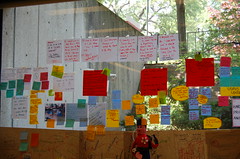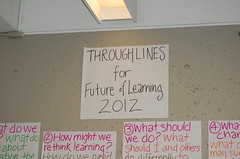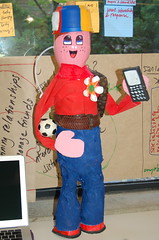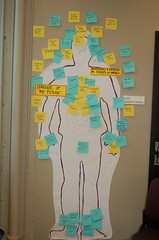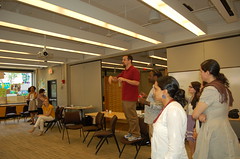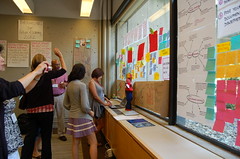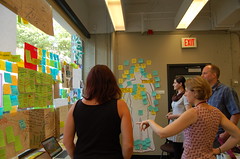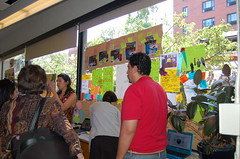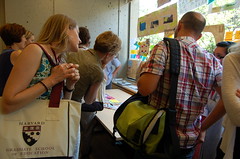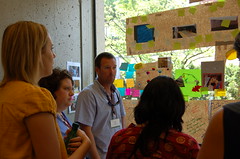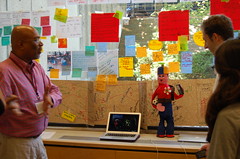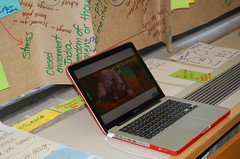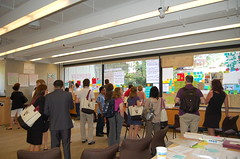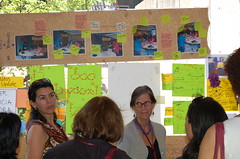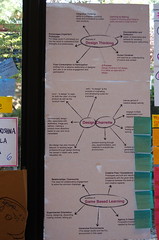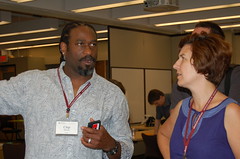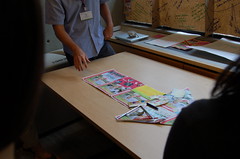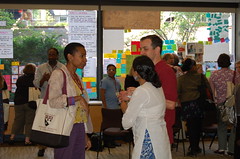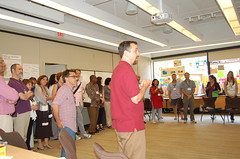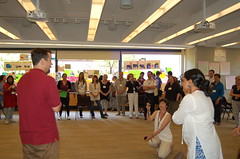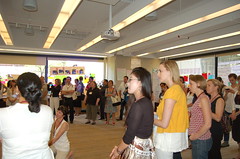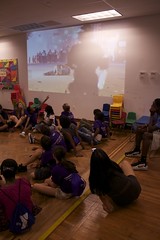We at the Youth and Media team believe that games are fun tools for inspiring questions and discussions. As a result, one way in which we disseminate our research is through co-designing educational games that teach digital literacies in fun, interactive ways. Past games have addressed digital issues such as privacy, information quality, and safety.
Working alongside high school and college students to co-design games, we are able to create games in a participatory manner that we believe maximizes their impact on the young people who play them. By involving young people in the creative process, we seek to increase the likelihood that our games will teach the lessons that they intend to teach.
The games listed below are the most recent versions developed through our co-creation process. After playing these games, we encourage you to remix them in accordance with your interests and experiences, as well as in response to recent technological developments.. All games are posted here under a Creative Commons licenses for easy sharing, remixing, and repurposing . If you decide to remix the content, then feel free to share these new versions with us at youthandmedia[at]cyber.law.harvard.edu. Regardless of whether or not your decide to remix the content, feel free to contact us at the same email address with any comments or suggestions that you may have.
* Search Yourself
This game is useful for introducing concepts of privacy, safety, and security to middle and high school students. It can be played in groups of 3-5 in 15-30 minutes. By playing the game, participants encounter opportunities to think about online privacy and talk about the idea that once they post something online it’s there forever.
Search Yourself – PDF
Search Yourself Cards – PDF
* Information Quality: The Game
This game familiarizes participants with the different factors which are important for consideration when searching for and evaluating information. From there, participants can create promotional campaigns for their projects in order to engage in the creation process and put into action those elements which they identified as compelling during search and evaluation.
Information Quality: The Game – PDF
Information Quality: The Game – PPT



